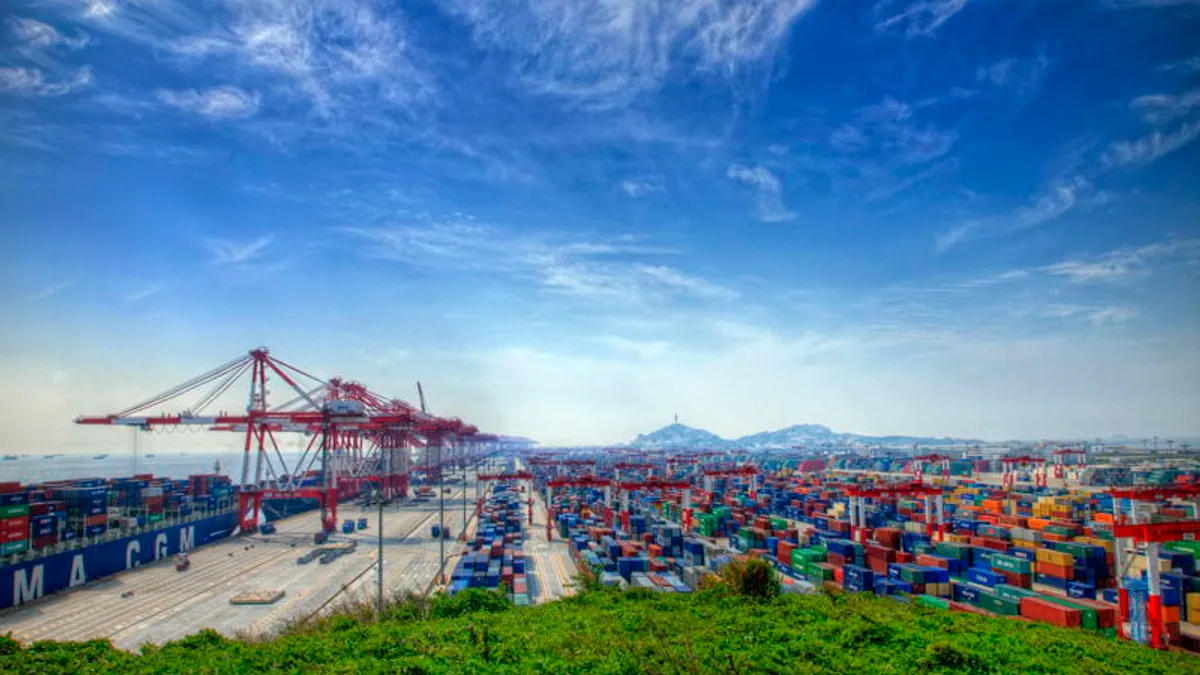Dive Brief:
- China is experiencing a shortage of truck drivers as a result of the COVID-19 outbreak and quarantine, Hapag-Lloyd reported Wednesday. Offices in China, other than its Wuhan location, are open along with all of its terminals and depots.
- There is also a limited supply of reefer plugs in China's ports, resulting in congestion and a lack of availability COSCO Shipping said in a service alert last week.
- Ocean carriers are continuing to blank sailings between the U.S. and China with MSC announcing a new omission this week. New blank sailings are likely to happen with little notice, Maersk said last week.
Dive Insight:
"Consequently, most reefer plugs at the yards of all container terminals in Shanghai, Ningbo and Tianjin/Xingang are already being occupied," CMA CGM announced on Fed. 13. "CMA CGM is then forced to divert Reefer cargo to other ports."
Carriers are passing this cost along to customers in new rates and surcharges for reefer cargo.
If shipments are currently stuck at a port in China it could be difficult to determine when it will reach its final destination as this situation is outside the norm for most transportation companies.
"This is where the bottlenecks are, where the barriers are, where you might expect delay," Glenn Richey, a professor of supply chain management at Auburn University told Supply Chain Dive in an interview, speaking about the ports in China. "They aren't completely sure about when a product will move out of the port, how long it'll sit there."
American Global Logistics recommended booking trucking services two days in advance as a result of the driver shortage.
This environment has led to shippers getting creative. Jaguar Land Rover has taken to flying parts from its Chinese suppliers in suitcases to the United Kingdom, the BBC reported.
"Many companies are turning to charter flights to deal with the lack of supply, these flights have been fluctuating between $500,000 and $800,000 one way," American Global Logistics said in an update emailed to Supply Chain Dive.
Apple and Trimble are also experiencing supply chain-related issues stemming from COVID-19, an illness in the coronavirus family.














